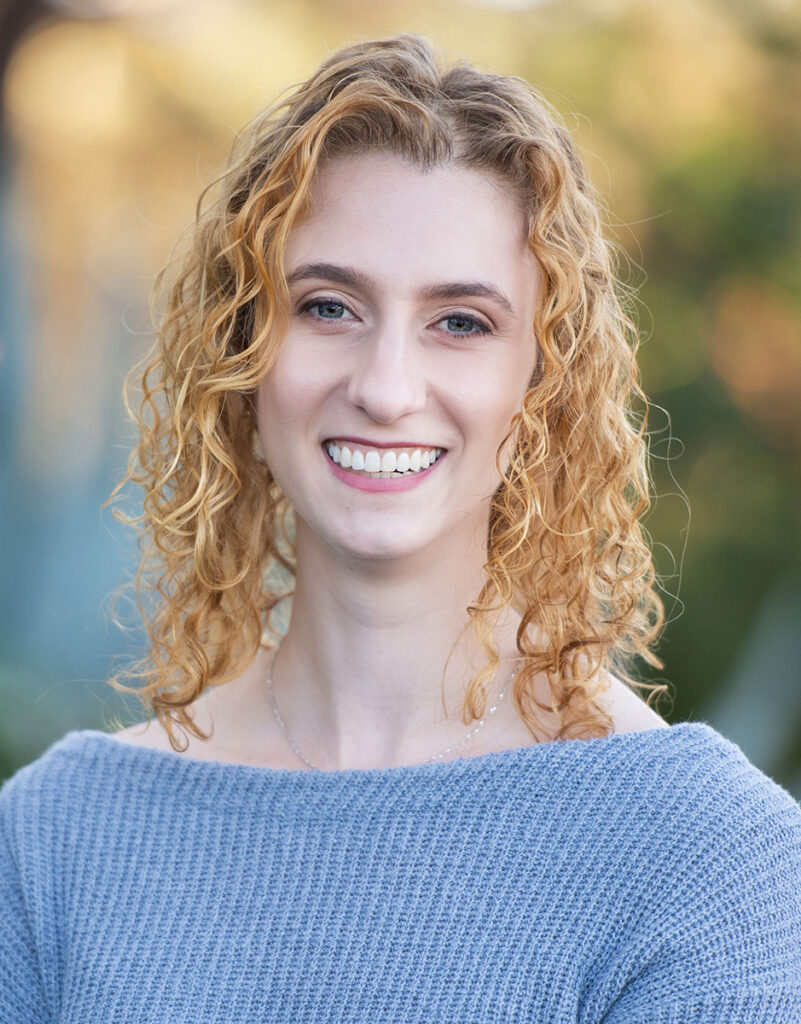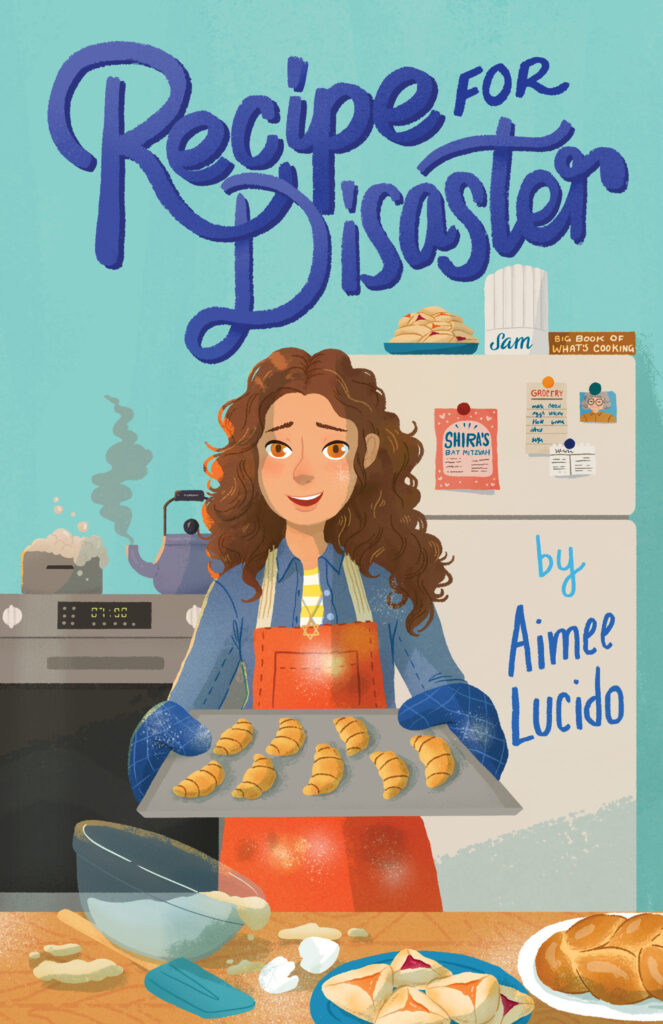RECIPE FOR DISASTER (Versify, 2021) by Aimee Lucido is a tender, relatable, and sometimes raw middle-grade novel. Featuring a unique mix of prose and verse, readers follow Hannah as she establishes her own Jewish identity against her parents’ wishes. The story also explores Hannah’s relationships with her peers and family members, including her beloved grandmother. These interactions are poignant but not perfect. Hannah’s realistic journey makes her a believable and thoughtful protagonist. I’m honored to chat with Aimee about the heart of her writing process.
In RECIPE FOR DISASTER, Hannah’s desire to have a Bat Mitzvah against the wishes of her parents inspires a chain of events with her family and friends. How do Hannah’s relationships help her establish her own Jewish identity?
When I was writing RECIPE, I wanted the cast of characters that surrounded Hannah to all have different relationships to Judaism. For example, I wanted Grandma Mimi to represent the warm, loving parts of traditional Judaism, the parts that I associate with my own grandparents. I wanted Vee to represent a more modern, intentional form of Judaism, a form that I associate with my more recent forays into understanding what Judaism means to me. I wanted Shira to represent the kids I grew up with, who knew they were Jewish but didn’t necessarily know why, or why it was important to them, and I wanted Hannah’s mom to represent some of my worst fears about Judaism–that I don’t fit, and that I’m not wanted. Hannah herself is surrounded by all these characters and more, and through each one of them she absorbs some of their takes on what Judaism is. She looks to them for guidance, for answers, and at different points in the story, her own opinions on what it means to be Jewish reflect pieces of many different characters’ interpretations. But ultimately, Hannah is Jewish in a different way from anyone else–every Jewish person is!–and the only way that Hannah is ever going to feel confident in who she is as a Jew is if she ignores the other voices around her, and decides what Judaism means to her.

The novel shifts from verse to prose, including the use of recipes as a metaphor. How did you balance these literary styles while you wrote the novel?
My first book, EMMY IN THE KEY OF CODE, uses computer code as a poetic device to represent the specific way that the story’s protagonist–Emmy–approaches the world around her. So when I was brainstorming ideas for a second book, I knew I wanted to create a story and a character whose brain worked in a similar way to Emmy’s, but using a different medium. When I thought of the idea of using recipes as a poetic device, I knew I had something interesting. There is so much richness to the language of recipes, to the words we use when describing food. And when I think of recipes and food within my own family, I think of family dinners, particularly the holiday dinners I’d have with my mom’s side of the family–the Jewish side.
Originally, I wanted this book to be entirely in verse, but as I was drafting, it simply wasn’t working. There was too much dialogue, too many important conversations that needed to happen, and as Hannah became clearer as a character in my head, it was obvious that she was a far less poetic soul than Emmy was. Emmy exists primarily in her thoughts, whereas Hannah defines herself much more in her relationship to others. But as I rewrote the book in prose, there were poetic moments from the early drafts that stood out as authentic to Hannah’s ever-evolving character. For example, it became clear to me that Hannah is someone who bakes when she’s trying to process the events going on around her, and I know when I bake my thoughts get kind of murky, almost meditative. I wanted Hannah’s baking thoughts to reflect that sort of reverie, so I decided to write the recipes as poetry, turning them into an almost metaphorical contemplation on the events happening in the story. In a way, the balance between poetry and prose happened fairly naturally in final drafts, because whenever the story needed an internal, reflective moment, that’s where I would put the recipe interstitials.
Hannah’s Bat Mitzvah preparation includes some deep exploration of Jewish thought and Torah study. What was your own research/learning process like for this book?
I ended up doing a lot of research for this book. More than I’ve ever done for a book before, and way more than I ever expected I’d need to do. This book is based on my own life, after all. So what could I possibly need to research!
Well, it turns out, a lot. In early versions of this book, I thought I was going to go deeper into the science of cooking. So for the first several months I was working on it, I was baking multiple times a week, spending extra time digging deep into the chemistry of what purpose each ingredient served. One time, I was baking red velvet cake with a friend and she accidentally used baking powder instead of baking soda. You wouldn’t necessarily think that would cause your cupcakes to taste bad, since baking soda is actually an ingredient in baking powder. But recipes are so carefully balanced that the amount of baking soda listed in the recipe was calibrated to be the exact amount we needed in order for it to fully react with another ingredient–vinegar! If you’ve ever seen a baking soda and vinegar volcano, you know that these two ingredients react to make an explosion, and in baking, that explosion is harnessed in order to help your cake rise. But if you don’t use enough baking soda to react with all the vinegar, you have vinegar left over in the final batter, which causes the cupcakes to taste sour! BLECH!
And the food was just one small piece of the research puzzle. I wasn’t raised with a ton of religion in my life, and even though Hannah wasn’t either, she was supposed to be preparing for a bat mitzvah over the course of the book. This meant *I* needed to prepare for a bat mitzvah too! I read so many Torah portions in order to figure out which one I wanted Hannah to have, I learned the basics of how to read Hebrew, and I had an uncountable number of conversations about Jewish history, traditions, and the different ways people interpret what it means to be Jewish. By the time the book was finished I knew so much more about my own culture and identity than I did when I began.

The theme of forgiveness plays an important role in the novel. How is forgiveness connected to Hannah’s Jewish identity?
To me, forgiveness and atonement are two sides of the same coin, and I’ve always been drawn to the Jewish concept of atonement. Atonement–and therefore, forgiveness–is so prominent within Judaism that it felt impossible to write a Jewish story without it. But even though atonement is so important, it’s often incredibly misunderstood. True atonement–the act of soul-searching and improving oneself in order to be deserving of forgiveness–is something so few people know how or are willing to do. I remember as a kid being told to “say you’re sorry” and I would cross my arms and furrow my brow and shout “SORRY!” But this isn’t atonement, this is shouting a word that my parents told me to say!
I think there are so many kids that are taught that “sorry” is some sort of magic word. Like, if you say it, it erases the wrong-doing, it eradicates everyone else’s hurt, and it dissolves any guilt the sorry-sayer feels. But “sorry” is just a word, and it alone doesn’t change anything. True atonement is much harder to come by. It requires actual internal change, or at the very least, external practices in place to ensure that the hurtful thing won’t happen again. And when I found myself writing the story of Hannah’s family, a family that was at risk of breaking apart, the concept of atonement was front and center in my brain. This meant that it was front and center in Hannah’s brain too. If Hannah was going to come to terms with her own Judaism, she needed to first understand and then forgive the roles her family members played in why her identity was so confused in the first place. In the end, maybe some family members are more worthy of that forgiveness than others, and Hannah has to deal with that just like any real-life kid would. Furthermore, Hannah needed to atone for her own mistakes, because she had hurt people too. And whether or not those people chose to forgive Hannah wasn’t something Hannah–or people in general–could always control.
What is your favorite recipe in the book?
I’m a real sucker for sufganiyot. Nothing can beat a well-made donut for me 🙂
Thank you, Aimee!
Aimee Lucido is a software engineer and the author of EMMY IN THE KEY OF CODE. She got her MFA in writing for children and young adults at Hamline University and lives with her husband and dog in Berkeley, CA where she likes to bake, run, and write crossword puzzles. www.aimeelucido.com Twitter: @AimeeLucido Instagram: @AimeeLucido